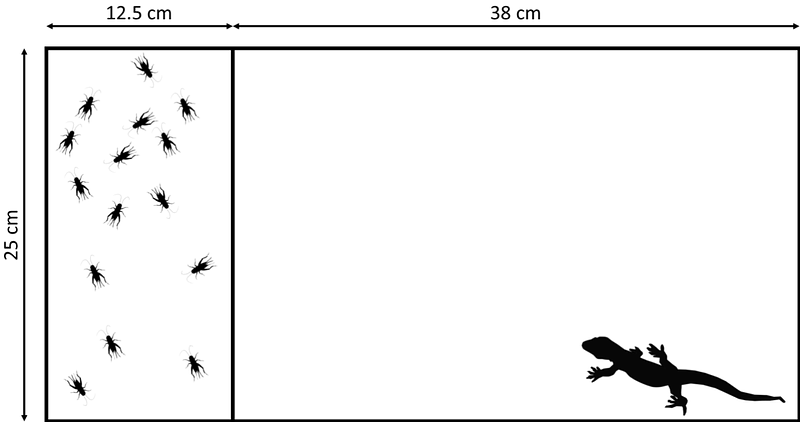Chronic exposure to predator cues fails to elicit plastic responses or transgenerational effects in banded crickets

Chronic exposure to predator cues fails to elicit plastic responses or transgenerational effects in banded crickets
Dalos, J.; Dochtermann, N. A.
AbstractPlasticity is a major feature of behavior and particularly important for how animals respond to predators. While animals frequently show plastic responses when directly exposed to predators, with these exposures even leading to permanent behavioral changes and transgenerational effects, whether indirect cues of predator presence can elicit similarly severe responses is unclear. We exposed banded crickets (Gryllodes siglattus) to cues of predator presence throughout development and compared their behavior--as well as the behavior of their offspring--to individuals who had not been reared in the presence of predator cues. Contrary to findings in both G. sigilattus and related species, we did not detect either developmental plasticity in the form of differences between adult behavior or differences in offspring behavior. These findings suggest that chronic exposure to cues of predator presence have a substantially different affect on behaviors than does direct exposure to predators. How habituation might interact with developmental plasticity and transgenerational effects requires further investigation.